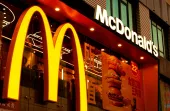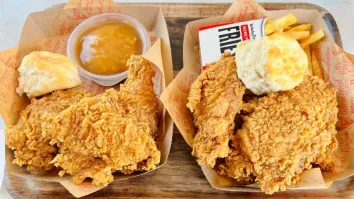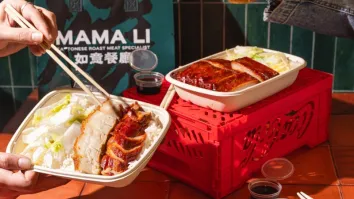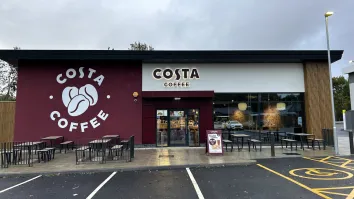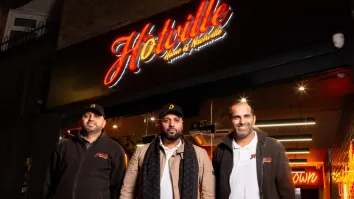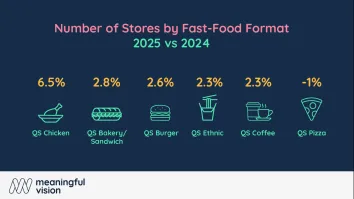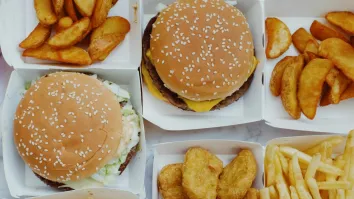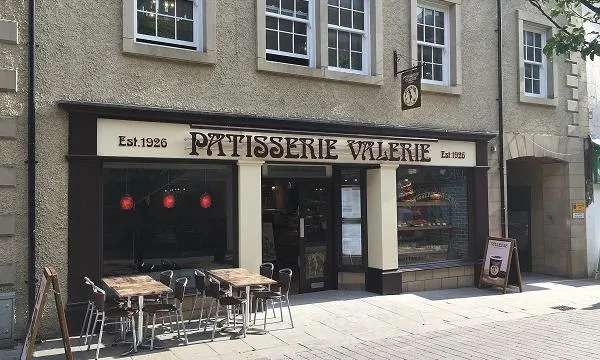
2018: Year In Review
From Brexit-driven cost pressures to a bakery chain’s multi-million accounting hole, here are the top themes from the UK’s QSR space in 2018.

London’s High Street dilemma
The whole hospitality sector has suffered under a series of closures. Among the QSRs and fast casual chains, Prezzo, Carluccio's, Byron Hamburgers and Gourmet Burger Kitchen are just some of the brands who have experienced difficulties. 2018 saw the rise of the company voluntary arrangement. Some analysts and researchers cited that this is due to Brexit, and increasing cost pressures across the industry.
Joe Delucci's Gelato and Gaucho were fortunate enough to be bought out of administration.
- Lynx Purchasing: "While we can't change the big picture on Brexit, there are plenty of small measures operators can implement that can add up to a big difference on the bottom line."
- Gaucho acquired by Lomo Bidco as it exits voluntary administration
- Gourmet Burger Kitchen Makes Progress as 14 out of the 17 stores slated for closure have shuttered
- Creditors approve company voluntary arrangement for Prezzo

The food-to-go sector
The food-to-go (FTG) sector, according to IGD, will reach a market value of £23.5 billion by 2022. This is driven not only by consumers looking for convenient options but also by QSRs expanding their product range and even partnerships to bring in FTG options.
YO! Sushi has partnered with supermarket chain Tesco to pilot FTG counters where they guarantee that customers can see the same offerings their outlets have. Bella Italia also announced that they are bringing their new retail range to Tesco.
- IGD: The food-to-go market will be worth £23.5 billion by 2022
- EXCLUSIVE: How YO! Sushi is aiming for a bigger share of the food-to-go market
- Bella Italia to launch retail range in Tesco groceries

Growing demand for vegan options
Many studies have predicted even before 2018 came that the vegan and vegetarian population will grow, thus, requiring QSRs to go with the trend. A recent study by the NPD Group also stated that it will still be a top trend by 2019 as people are getting more conscious on the food they eat.
LEON, Domino’s, Byron Hamburgers and Jamie’s Italian have all launched vegan or as gluten-free offerings. There are also some like Honest Burgers who have partnered with American plant-based meat company Beyond Meat to launch vegan-friendly burgers.
- Domino's trials vegan-friendly version of their Veggie Supreme
- Honest Burgers partners with Beyond Meat to roll out vegan-friendly Plant Burger
- NPD Group insights director: “Veganism and vegetarianism are not just passing fads and are working their way onto menus.”

New entries
Despite the pressures leading to the closures of many QSR chains, there are some brands outside the UK who see the market as an opportunity.
This includes the Taiwan-based restaurant chain Din Tai Fung who just opened in Covent Garden. But another Asian brand Jollibee has seen a long line of customers on it opening day whom many are said to have waited for six hours to order. The Philippine fast food chain aims to open 25 more stores in the UK. The Halal Guys from the US also expressed plans to debut in the UK.
- Jollibee Foods Corporation: “Jollibee considers UK as one the key markets in line with the brand’s global growth”.
- Din Tai Fung opens new store in Covent Garden
- The Halal Guys set for London entry

Deliveroo drivers declared as ‘self-employed’
Trade unions such as the Independent Workers' Union of Great Britain (IWGB) stressed that Deliveroo riders shouldn’t be labelled as self-employed for them to to receive benefits such as holiday pay and protection provided by the minimum wage laws. Deliveroo argued that being ‘self-employed’ gives their rider to choose whenever and wherever they want to work.
When this was brought to the Central Arbitration Committee, it was confirmed that their riders are indeed self-employed. Following this, the food aggregator has proposed a new charter to give their employees benefits without causing confusion on their employment status.
- Deliveroo reacts to high court ruling, maintains riders are self-employed
- Deliveroo proposes new charter for riders "without the risk" of affecting self-employment status
.png)
A whole new look
This year have also seen some QSRs doing revamp on their model. For instance, Pizza Hut announced that their delivery store concepts will operate under a fast-casual model. It also comes with a contemporary look and feel and allows a customer to choose between dining in, carry it out or have it delivered.
Ed’s Diner also did a brand refresh with an American-inspired store look, pay-at-the-counter service, refreshed menu and build-your-own burger bars.
- EXCLUSIVE: Pizza Hut Delivery discuss their fast casual revamp
- Ed's Diner revamps UK restaurants and service model

Pret A Manger’s allergen scandal
The sandwich chain Pret A Manger made headlines after a coroner ruled that there was no specific allergen information on the sandwich that a teenager ate and subsequently formed a deadly allergic reaction to. Pret has since vowed to make changes in their labelling policies, but they were not the only QSR to do so.
Ever since then a few brands have announced their own strategies to prevent similar incidents from happening again. Deliveroo has launched a menu system that contains the allergen information of food. LEON is also trialling an initiative where the staff ask about a customer’s allergens.
- Pret A Manger baguette that killed teenager had no allergen information, coroner says
- Pret A Manger CEO: “I hope this sets us on course to drive change in the industry and ensure customers with allergies are as protected and informed as possible. Nothing is more important to Pret right now.”
- Deliveroo to launch new menu system with allergen information
- LEON trials allergen awareness initiative

Coca-Cola acquiring Costa Coffee
On early June, Costa Coffee’s parent company Whitbread has announced that they are selling the coffee chain. Then in September, they made global headlines as the beverage company Coca-Cola was confirmed to be its buyer for £3.9 billion (US$5.1 billion).
Analysts have cited that Coca-Cola is going to use Costa to take on Starbucks internationally. This is also said to help the company secure its entry to the growing ready-to-drink coffee segment.
- Whitbread now open to selling Costa Coffee
- GlobalData beverage analyst: “Global expansion will no doubt start there."
- Costa Coffee acquisition by Coca-Cola gains approval in China

Patisserie Valerie’s accounting hole
Another brand that made headlines is Patisserie Valerie, which discovered millions in unreported loans.
Their former chief finance officer Chris Marsh got suspended, then arrested before resigning. The chain’s CEO Paul May also resigned. The two were replaced by Nick Perrin and Steve Marsh. Chairman Luke Johnson has provided £20 million in loans to the struggling chain. Investigations on how the accounting irregularities transpired are still ongoing.
- Black (Forest Gat) hole: Patisserie Valerie discovers almost £10 million in unreported loans
- Patisserie Valerie chairman Luke Johnson foregoes annual salary
- Patisserie Valerie auditor faces probe on alleged fraud
- Patisserie Valerie appoints Nick Perrin as interim CFO

QSRs' growing loyalty programmes
Another consequence of the rising demand for more convenient solutions is the rising popularity of loyalty programmes. For instance, QSRs’ existing programmes are extending to the other parts of QSRs businesses.
For example, Costa Coffee announced last November that they are introducing their digital loyalty scheme to their Costa Express machines. To claim points, customers can just scan the QR codes on the machines. Also, Pizza Hut Europe recently launched their Hut Rewards, their new loyalty programme on delivery. A customer can earn a slice for every £10 spent, five slices the customer can earn a free side.
